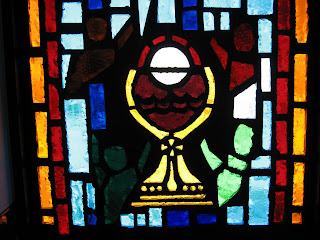We live in fear. Regardless of our circumstances in life, for so many of us, fear is the overriding force that guides our thoughts and actions. I realize this, but in despair, I feel helpless to change that fact.
I work every day in a ministry that sends a devotional calendar to thousands of prisoners. Each day I read a hundred or so letters from prisoners requesting that our church send them the free calendar that we have been making available for over seven years. We didn’t set out for this ministry to serve prisoners, but through God’s divine intervention, and the generousity of those who support this ministry, it has grown into a powerful voice of hope for the thousands in prison.
But I just read the letters. Most often, the pile of letters are simmered down into a long orderly list of names and identification numbers, scattered across the country. But occasionally, like today, it boils over with the scalding hot realization of the fear and hopelessness felt by so many in our world.
Today, I felt particularly disturbed by two letters. The first was from a man in prison in Kentucky who was asking for prayer. We know this man, only superficially, by his name and his handwriting, to be an easy-going joker. He has written to us several times over the past two years, always with kind thoughts, asking for prayers, telling us it is going to be all right for him, through the grace of God. But today’s brief letter is filled with despair. He qualified for parole last summer, but he has nowhere to go, so he will not be released. His letter stated simply, “No one will help me.” Why? I wondered, as I tapped his number into the computer and quickly found the answer. Fear. The hard eyes of the 51-year-old, shaven-head, grim faced man stared out at me from the photo on the computer screen, above a list of several sex offenses. I recoiled involuntarily from the screen, then quickly closed the window, as if to prevent him from witnessing my reaction.
The second letter came from a much younger man, addressed to my husband who had written the devotional on the day the young man’s mother died. It is also the day my son was born. I screened the letter, struggling through six pages of tight, unfamiliar script, that described in detail the broken childhood and decade-long spree of gang activity and violent assaults that had led this young man to the place he was. In the letter, I learned he was from here in Houston, and he is the same age as my son. He has spent the past six years in prison. During that time his mother and grandmother have died, and his wife divorced him. His son, who was an infant at the time of his incarceration, would be a first or second grader now, and probably does not know him at all. He faces three more years of soul-searching behind bars before he has the opportunity to put his life back together. And he is afraid.
A conversation I had several months ago keeps running through my mind. My brother is a federal corrections officer in another state. My father is a volunteer chaplain at a state corrections facility. The three of us became involved in a cautious discussion during a family get together over the holidays. Not a good idea, in consideration of our different experiences and perspectives on many prison issues. Our spouses and other siblings retreated to other rooms, to avoid witnessing the inevitable trainwreck. The details of the discussion are lost, but at one point when our polite differences of opinion began to sting, my brother turned to me and demanded, “What do you think we owe them?”
I groped around for an answer, but I didn’t really know how to approach that question. I think that as the collective “we” would assume that they have gotten, through the judicial system, exactly what we owe them: two years, or ten, or twenty, or life behind bars, if we are really afraid of them. And “we” assume they have already received their fair trial, adequate representation, and now serve their sentence in humane, if spartan, conditions.
But today I think about what I owe them as an individual professing Christian beliefs. I think we owe them Hope. Hope that things can be different, that their life can turn a corner, and they can have a new start once they have paid their debt. But hope is in short supply. What we have, in abundance, is fear. We are afraid of them, and they are afraid of the world. We generally assume that most of them will re-offend, and the recidivism rates support that assumption. That is why no one will help a Kentucky sex-offender find a place to go. That is why the young Houston gang-banger is afraid to come home.
Fear must be replaced by hope. And the hope that holds us together, that lifts us out of fear, is in Jesus Christ. If we can accept the radical forgiveness of Jesus, only if we embrace the upside-down message of the Gospels, can fear be overcome by hope. Hope for acceptance, hope for the sex-offender, hope for the gang-banger, hope for the corrections officer, hope for the prison chaplain, hope for me.
“My Lord God, I have no idea where I am going. I do not see the road ahead of me, I cannot know for certain where it will end. Nor do I really know myself, and the fact that I think I am following your will does not mean that I am actually doing so. But I believe that the desire to please you does in fact please you. And I hope I have that desire in all that I am doing. I hope that I will never do anything apart from that desire. And I know that if I do this, you will lead me by the right road, though I may know nothing about it. Therefore, I will trust you always though I may seem to be lost and in the shadow of death. I will not fear, for you are ever with me, and you will never leave me to face my perils alone.” Thomas Merton, Thoughts in Solitude






